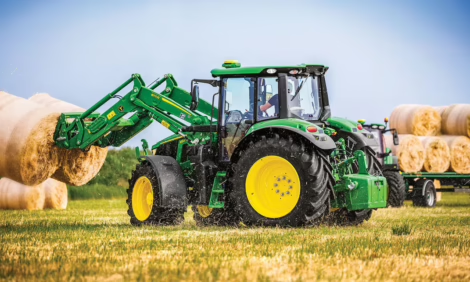



US Pork Industry Opposes Proposed Ban on Packer Ownership of Livestock
US - The National Pork Producers Council warns, if allowed to move forward, a proposed ban on packer ownership of livestock could result in considerable disruption within the US pork industry, writes Bruce Cochrane.A ban on the ownership of livestock by packers is being championed by Iowa Senator Chuck Grassley as a means of stimulating competition for livestock thereby raising prices.
Dr Steve Meyer, the Vice President Pork Analysis with EMI Analytics and Consulting Economist with the National Pork Producers Council, told those on hand last week for World Pork Expo in Des Moines, he and most of those involved in the pork industry don't believe that will happen.
Dr Steve Meyer-EMI Analytics:
For one thing, packers own about 25 percent of the hogs that are slaughtered in the United States that move either to their plants or in some cases are sold to another for those hogs that are out of place.
If you ban the ownership of those, that would increase the demand for hogs by 25 per cent but it would also increase the available supply by 25 per cent and I don't see where that's going to have any impact on prices.
Then there is a lot of work of, how do you go about divesting those?
The real problem with the law though is it says it bans packer ownership and anything that gives packers managerial control.
We have marketing contracts many of which are pretty specific about nutrition and genetics and rearing methods and a number of things like that.
We've always been concerned that that clause about managerial control would be used to ban marketing contracts which cover about 70 per cent of the hogs in the United States and are important tools for producers and packers and lenders in managing risk and in guaranteeing access.
We've repeatedly asked the Senator, just put something in your law that says it doesn't cover marketing contracts and he has refused to do so.
So that tells us that those are really at risk and that's the source of most of the opposition here.
Dr Keenliside says environmental surveillance sampling continues at high traffic pig sites in Saskatchewan and Alberta and so far there have no PED positive environmental samples detected in either province.








